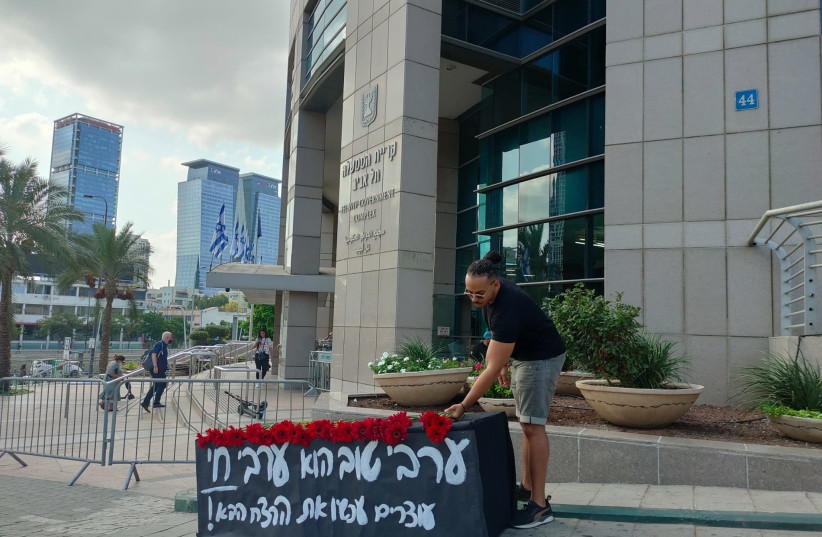world news
‘Arab cities are run by gangs, and the police don’t care’
Last July, Agbaria’s brother, Khaled, was gunned down just outside the family’s home. “That morning, he prayed at home, and then went out at 5 a.m. to go to work,” Agbaria says. He was killed on the street a few blocks away.
That same year, a cousin with disabilities was shot in the head in front of his home on his way to have dinner with his parents. Several months later, another cousin was killed on a Friday after attending a rally protesting violence, Agbaria says. Yet another cousin is now recovering in the hospital from gunshot wounds in his hands and feet.
Police told Agbaria’s family that they don’t have any leads for any of the cases. “I yelled at them, ‘you have security cameras everywhere on the streets,’ and said they were lying,” she says. “Two days later, the investigator was removed from the case. The police have still not called, and they don’t care at all.”
Israeli police at a temporary checkpoint in Gilboa area, as they search for the six Palestinian fugitives who escaped from a high security prison in Northern Israel yesterday. September 7, 2021. (credit: NATI SHOHAT/FLASH90)
A deep mistrust of the police by Israeli Arabs and police has been brewing for more than two decades, explains Ola Najami Yousef, director of community initiatives at The Abraham Initiatives, a non-profit dedicated to promoting equal rights for Israel’s Jewish and Arab residents.
Thirteen Arab Israelis were killed by police in October 2000, at the beginning of the second Intifada, in a series of clashes that left a scar on Arab society that is still felt today, Najami Yousef says. Arabs lost all confidence in Israeli law enforcement officials, and while a 2003 report by the Or Commission listed a number of recommendations for improving relations between Israeli police and Arab citizens, the situation actually got worse after that point.
“From that time until 2016, police decreased their presence in cities, and crime rose significantly,” Najami Yousef says. “Families that were dealing in criminal activities were able to grow into large organizations that took control over entire communities. It got to the point where everything, from school bus contracts to private loans, was all in the hands of gangs.”
In 2016, the decision was made to begin increasing police presence in villages, after years where they were hardly visible. “But they didn’t work on rebuilding trust after ignoring the community for so long,’ Najami Yousef says. “Things got worse. People don’t expect fair service from the police, and the gangs have already taken control over all aspects of life.”
“Now, it has gotten to the point where the gangs don’t have red lines anymore,” Najami Yousef says. “It used to be that women, children, and religious figures were off-limits. But now there are no borders.”
Meanwhile, law-abiding members of the Arab community feel they have been abandoned by law enforcement officials.
“Killings in our community are police officers’ lowest priority,” says Dr. Warda Sada, an educator and social activist living in Jerusalem. “Police say all the time that they are unable to find suspects for our murders. But when prisoners broke out of the Gilboa Prison this month, they were able to find and capture everyone quickly, even though they had to go into Jenin.”
Sada suspects that some police officers may work in cahoots with crime lords. “We have seen that whenever we call the police after a crime, they come only after the criminals have had enough time to clean their tracks,” she says. “We have always felt that the gangs must be working together with members of the police who are not clean. We want them to work seriously to clean up the crime in our communities.”
Agbaria and other bereaved family members were set to meet with Public Security Minister Omer Bar Lev Sunday afternoon to discuss the problem, following protests outside of his home Saturday night. “We are going to tell him that we want answers, and we want a solution to the problem,” Agbaria says. “There is killing everywhere, and the police have not caught anyone.”
However, she notes, a similar meeting she had last year with then-president Reuven Rivlin yielded no results. “He said he wanted to work to protect us, but then we didn’t hear from him again,” she says. “We need our voices to be heard.”
